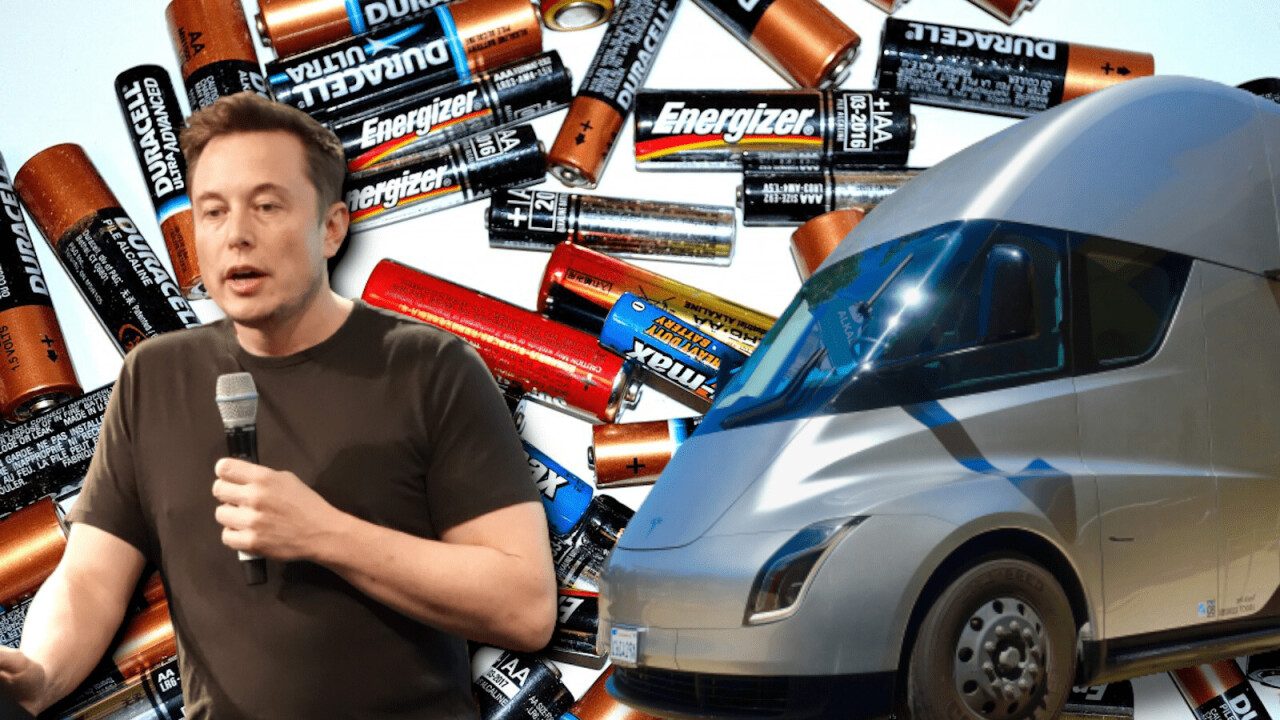
In typical fashion, Tesla figurehead Elon Musk has boasted about the range of the EV company’s planned semi-articulated electric truck.
According to a report by Electrek, Musk said that the goal is to eventually equip the truck with enough power to travel 621 miles (1,000 km) on a charge.
The range will reportedly be achieved thanks to new in-house battery cells and pack technology.
[Read: Why this security engineer loves working in infosec]
When announced back in 2017, Tesla said that its semi truck would come with two battery options that equate to 300 miles or 500 miles of range. However, according to Musk, the EV maker has found ways to improve its range as they’ve been testing prototypes of the haulage wagon.
Musk touted the potential improvements to the range in an interview yesterday, and added that getting a range of 500 km (310 miles) is “quite easy.” For long-range trucking Tesla thinks it can easily take the range up to 800 km (500 miles), but over time there is a path to 1,000 km (621 miles).
A year ago, DriveTribe reported a real-world sighting of the Tesla semi. More recently, in September of this year, a Semi prototype was spotted carting other Tesla models around Fremont, California.
Spotted the #Tesla semi on the road in Fremont today with a trailer full of Tesla cars. Very neat! pic.twitter.com/gZjHVZ5OXn
— Westy (Alex) (@Westy543) June 26, 2020
The challenge with electric trucks is that as you add payload, their range takes a dramatic hit. This means that trucks need to be equipped with even bigger batteries, which also adds weight and hampers range.
The Tesla Semi is expected to have a total payload capacity of 40 metric tons.
With that in mind, it’s not surprising that Musk also said the Semi will use the firm’s new 4680 cells, which are slated to provide six times the power and 16% more range than the company’s current power packs.
If Tesla is going to live up to Musk’s expectations of a 1,000 km Semi, it’s going to have to continue developing its batteries to further increase the energy density of its cells.
More energy density means more range without as much of a weight or size penalty.

Get the TNW newsletter
Get the most important tech news in your inbox each week.




